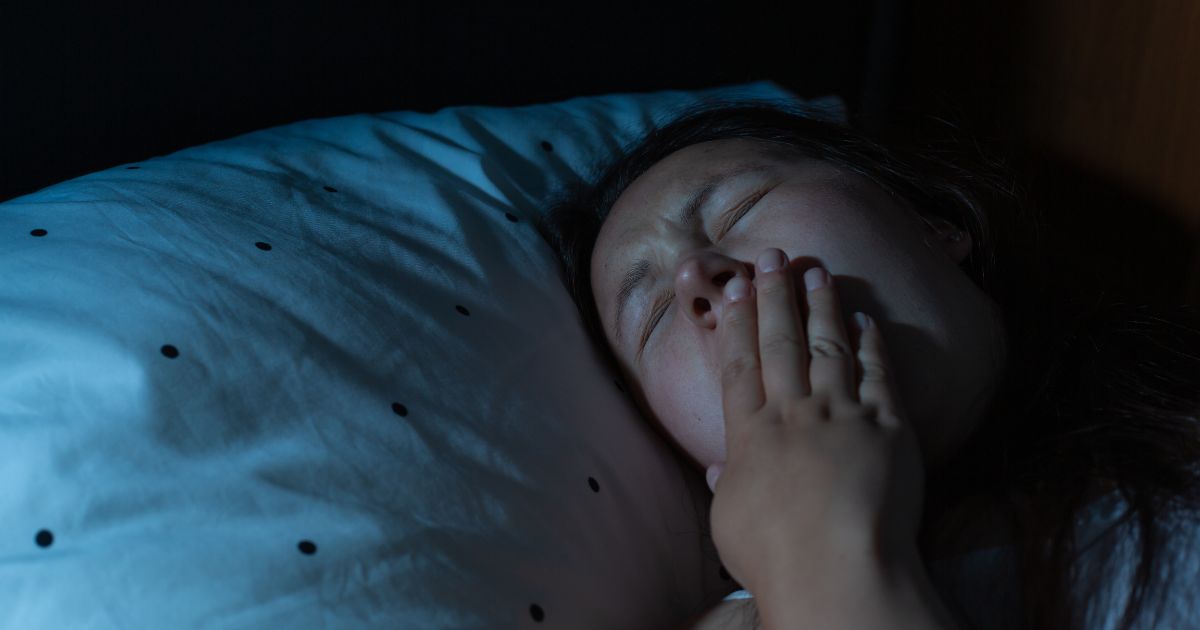Sometimes you just can’t fall asleep. That is completely normal! Whether it’s due to stress in your life, an unfamiliar hotel room, or a noisy neighbor keeping you up, there are few things more frustrating than lying in bed, wide awake, at the end of a long day. For some people the issue is much bigger. They struggle to sleep no matter how tired they are or wake up in the middle of the night for hours at a time. These people suffer from insomnia, and it can take a heavy toll on their energy, mood, overall health, and ability to function in their daily lives.
A diagnosis of insomnia is made if a person has difficulty falling asleep at least three days a week over a period of a month or longer, negatively affecting daytime functioning. Difficulty falling asleep is defined as taking more than 15 to 20 minutes to fall asleep. While everyone knows how badly they feel after a night without enough sleep, the consequences of insomnia can be very serious. Excessive sleepiness has been linked to depression, learning disabilities in children, and cognitive and memory problems in adults.
If you struggle with insomnia, these are some steps you can take to set the table for a good night’s sleep:
- Establish regular sleep patterns – By going to bed at the same time every day and getting up at the same time each morning, you train your body to sleep during these hours. Establishing a nightly routine, like taking a bath or reading a book before bed helps tell your body it is time to sleep.
- Exercise regularly – Regular exercise, preferably in the morning, improves restful sleep. Studies have shown that insomniacs who exercise regularly have more energy during the day, slept better, and were less depressed than those who do not.
- Ease off the coffee and soda – It takes your body at least four hours to eliminate just HALF of the caffeine from your last beverage! If you’d rather not eliminate it all together, try to limit your intake of caffeine to before 10 a.m.
- Skip the late night snack – Eating late meals activates your digestive system and can keep you up. If you suffer from acid reflux or heartburn, eating late at night could make your symptoms worse and keep you up even longer.
- Say no to naps – Though napping seems like a great way to catch up on sleep, it can actually negatively impact the quality of your nighttime sleep. Establishing regular sleep patterns is critical to combating insomnia, and napping during the day can throw off the cues (like darkness and the time of day) that your body starts to associate with sleep.
- Relax your mind – Lying in bed with a racing mind is miserable. The goal is to get all of your worrying done before you head hits the pillow. One way is to take some time in the evening to review your day, process your feelings, and plan ahead.
Hopefully these steps will have you getting a full night’s sleep in no time. However, if you try them and still have difficulty sleeping, a consultation with a sleep medicine specialist or a sleep study might be the right move to make.
The Jacksonville Sleep Center offers an unmatched level of care for the diagnosis and treatment of all sleep disorders. The only full time sleep medicine physician in the First Coast area, Dr. Nassar is board certified by the American Board of Sleep Medicine, as well as being board certified in pulmonology, internal medicine, and critical care. To get more information or schedule a visit, please call Dr. Nassar and the Dream Team at (904) 854-6899 or email [email protected]
For more on improving sleep habits and improving sleep quality click here to review our Insomnia Guide.






